Like reverse Tinder: The app that tracks and maps your local suburban rapists and paedophiles
TOUCH screen technology could soon have Australian homes able to track local sex offenders by name, address and photo in a new app.
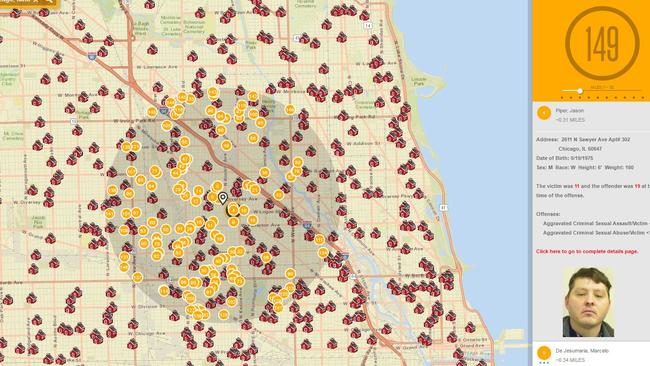
I JUST tracked a child sex offender — well, 149 of them — living in my neighbourhood and I have his name, address, physical description, his crimes and latest photograph.
All it took was a few clicks of my mouse and there on my screen was Jesus Avilar, a short overweight child sex predator who lives 3.5km away.
Avilar, 60, whose victim was a 14-year-old, lives at 4742 West Wrightwood Avenue, Chicago and his location comes up in a cluster of dots on the Illinois State Registered Sex Offender integrated map.
If I really lived at the residential address in Chicago that I entered into the Illinois register to test how it works, I could drive right past his house and perhaps recognise him from his mugshot mowing his lawn.
It is this technology, which works something like a reverse Tinder app, that will begin operating in Australia as a computerised national sex register, if newly-elected Senator Derryn Hinch has his way.
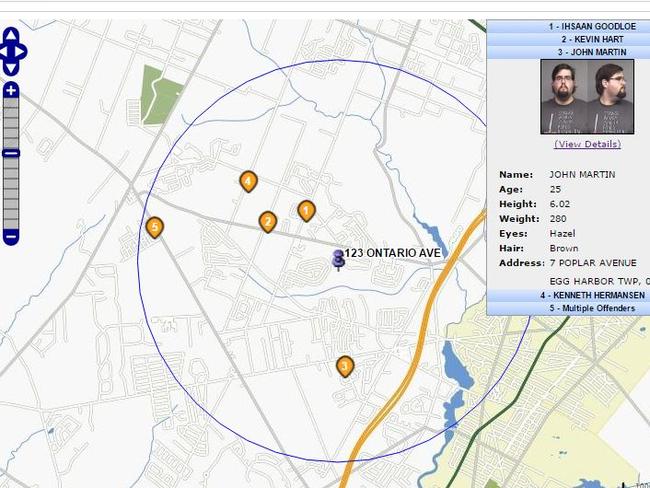
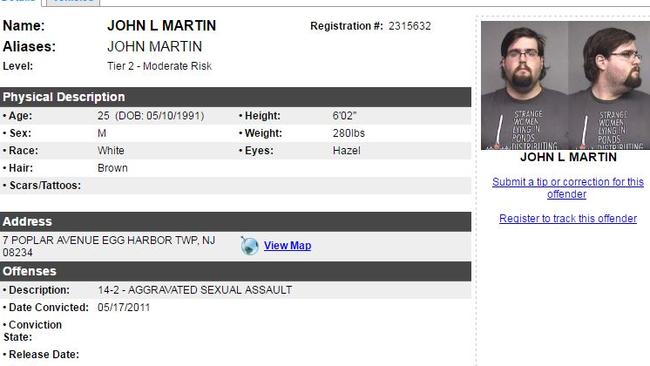
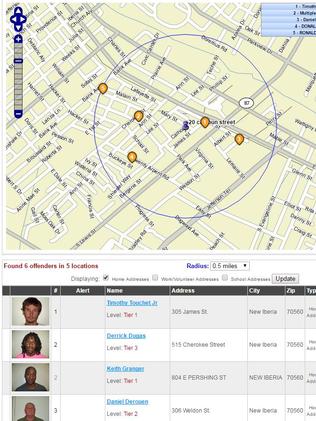
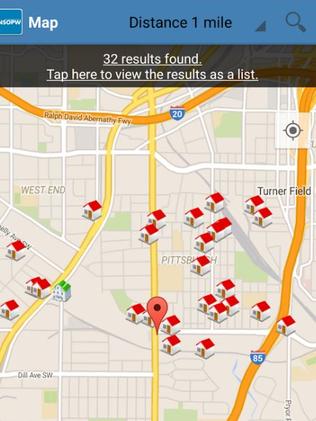
Available in several versions in different states across the US, the simple digitised crime log will make tracking your local suburban sex offenders as easy as looking up Google maps or using the Uber app on your phone.
Anyone around the world can access Avilar and his neighbouring sex offenders, or their equivalent, by entering an address and then clocking on the list of rapists and paedophiles in your home patch.
The proposed Australian national sex offenders register is the core policy of Senator Hinch’s Justice Party and he hopes to have it operating within two years, if Federal Parliamentarians vote it in.
Hinch, who has seen it in operation in several US states, said the computerised register was “just common sense” and “amazingly simple”.
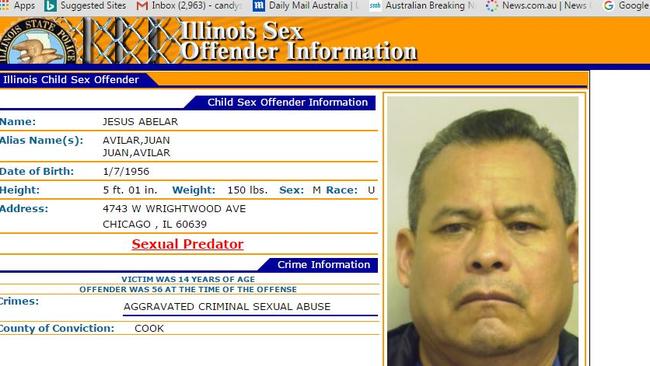
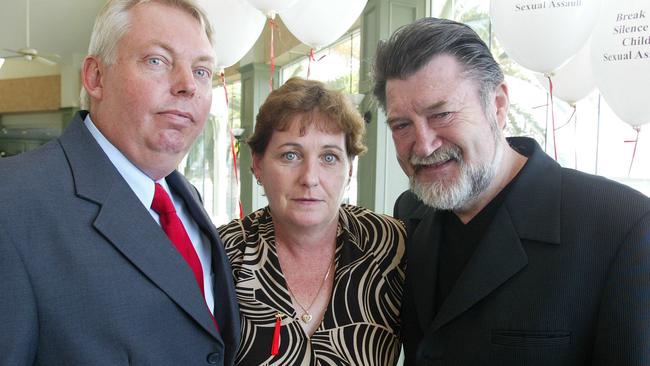
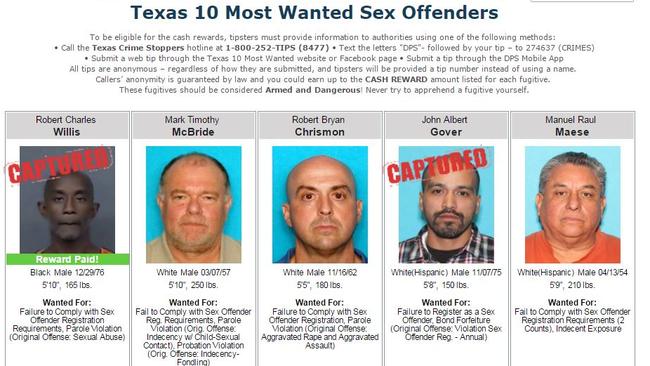
It was enacted under Megan’s Law, the child offender notification legislation introduced following the 1994 rape and murder of New Jersey seven-year-old Megan Kanka by one of three convicted paedophiles living in her street.
“I’ve been to Texas where Sarah Monaghan who was the victim of [former Hey Dad star and convicted paedophile] Robert Hughes,” Hinch told news.com.au.
“You just look up your address on your mobile phone and there’s 10 to 15 flags of people in your area.
“You can drive right up to where [the sex offender] is living and he’s on the porch with his pick-up truck in the driveway.
“There weren’t vigilantes taking advantage of the system and they have penalties of up to eight years for that sort of activity, which is what we’d have to consider here.
“But it allows you to know who and where the local child molesters are so that you don’t let your kids go trick or treating there, or if their ball goes over the fence.”
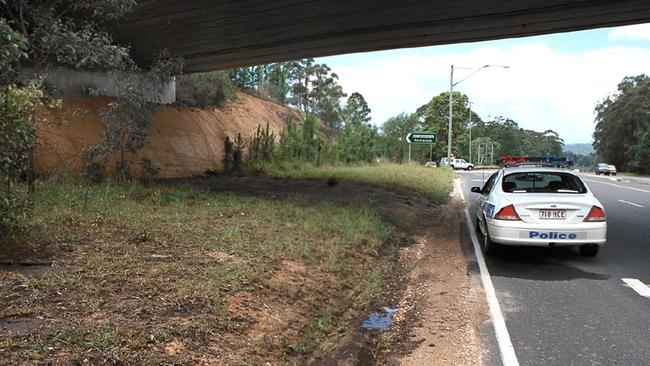

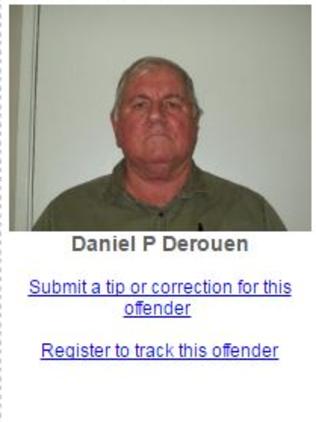
Hinch proposes calling the Australian act ‘Daniel’s Law’ after Daniel Morcombe, the 13-year-old abducted and murdered in 2003 by known child sex offender Brett Peter Cowan.
Hinch, who has campaigned with Daniel’s parents, Bruce and Denise Morcombe, said that if Cowan had been listed on a national register, he might not have been free to target Daniel.
“Cowan raped a seven-year-old boy outside a Darwin caravan park and left him for dead ... [10 years] before Daniel,” he said.
News.com.au tested the sex offender registers of three states, New Jersey, Illinois and Texas, and found them quick and easy to use.
The US Department of Justice operates a free national sex offender public website (NSOPW) and app in 35 of the 52 states.


The NSOPW website says that the “app provides users with information about registered sex offenders that have residential, employment, or school addresses that are within a proximity of the mobile device running the app.”
“Searches can be conducted nationally using a quarter mile, half mile, or one mile radius, or by offender name.”
Sex offenders can also be located by a postcode search, and tapping the “more information’ button pops up a detailed summary of the offenders’ crimes.
Citizens can register to track any individual offender’s future locations.
“Sex offenders are very cunning and they it suits them to have details of their names and addresses suppressed,” Hinch said.
“If you’re a sex offender, and I’m not talking about young people caught sexting their boyfriends and girlfriends, they don’t belong here, but people who have committed sex crimes and have been convicted should be on this list for life.”
candace.sutton@news.com.au



